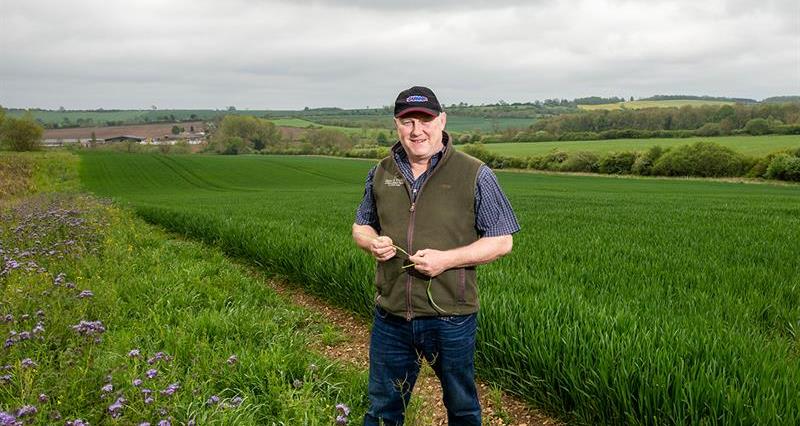The following case studies highlight some great IPM practice being carried out by NFU members, managing pests, weeds and diseases in a holistic manner on their farms. They highlight what problems they have encountered, how they are trying to make IPM work and where there are barriers to success. The diverse group also demonstrates how there is no “one size fits all” approach to IPM.
Brexit offers the chance for innovative thinking on the future support for integrated pest management as part of environmental land management schemes. Future environmental policy should consist of a mix of incentive schemes, including a farmed environment scheme, complemented by new market approaches, such as Payments for Ecosystem Services and industry-led action to improve environmental delivery. In addition, we see that science, research and innovation have an important role to help increase our resource efficiency, deliver net-zero carbon emissions and reduce our environmental impact. There needs to be targeted funding to achieve these environmental objectives.
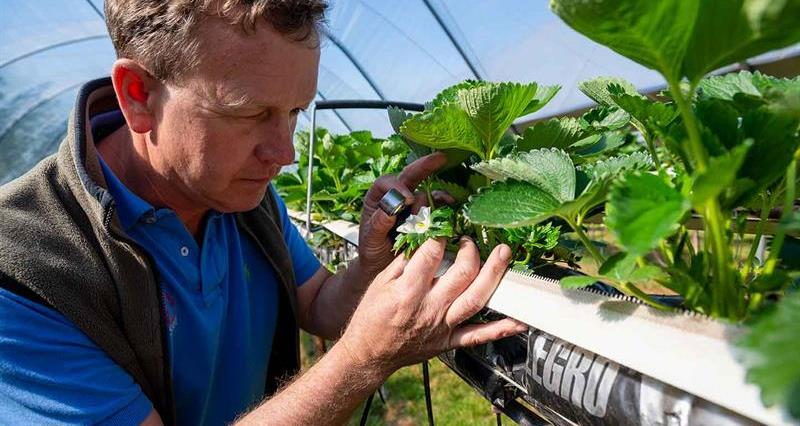
Windmill Farm is owned and run by company partners Anthony and Christine Snell, alongside Farm Manager Tom Deards who joined the farm in 2012.
Tom is a BASIS-qualified agronomist and the farm also uses a distributor agronomist and a Koppert employee who does regular crop walks. The farm believes that the Koppert visits are important to both parties and together they work out novel solutions to pest problems.
Monitoring is a key part of the farm’s IPM work and AHDB crop walker’s guides are supplied to employees to increase their knowledge of and ability to identify pests and beneficials. The farm also has a local pest spotter that comes from Berry Gardens who produces a report each time and places pheromone traps throughout the polytunnels to help monitor pest species and numbers.
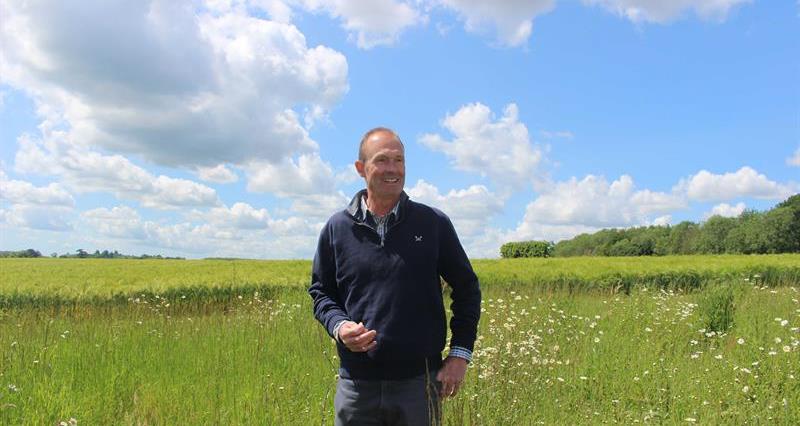
Andy’s philosophy to managing pests, weeds and diseases is to take a whole system approach. He has spent time learning from farmers in Argentina as part of a post-graduate certificate in Agrifood with Nottingham University and his experiences have taught him to work with nature rather than against it and to treat the causes of problems, rather than the symptoms. Andy’s practices include direct drilling, use of cover crops, reintroducing livestock and not using insecticides in order to increase biodiversity.
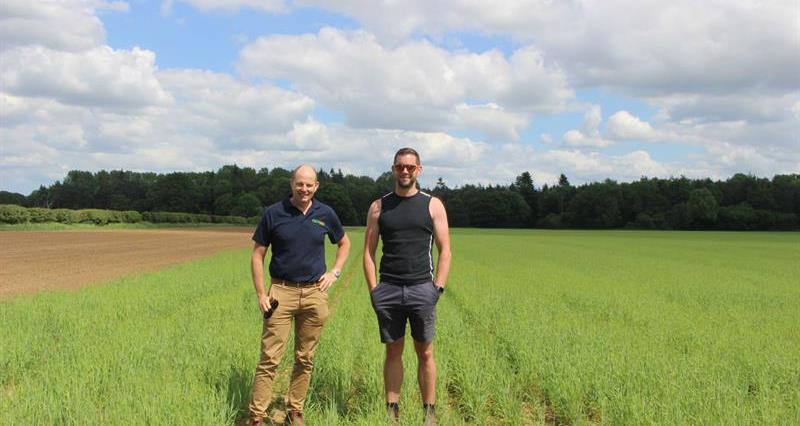
In looking at how the farm views IPM, Andrew says, “In managing problems, we think more about prevention rather than control. We have a whole systems approach and it is much broader than just a single issue. For example:- I believe blackgrass is a problem that has been made through short, poorly thought out rotations and over reliance on a single point of control.”
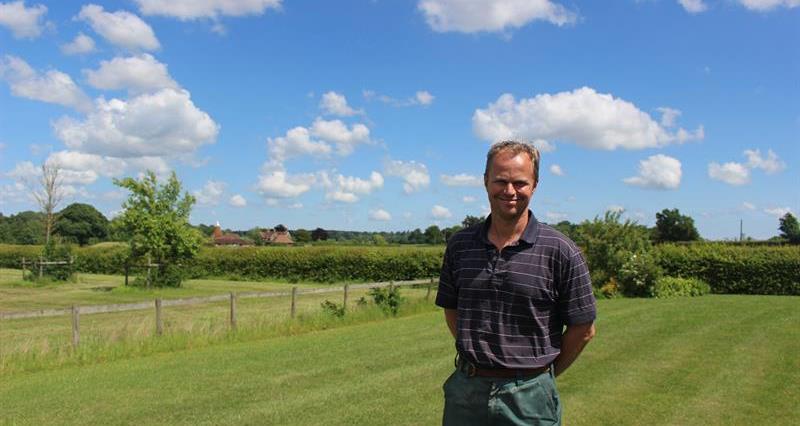
Following his Nuffield Scholarship, Andrew Howard set himself the target to reduce inputs by 50% over 5 years and he is well on his way to achieving that! Over the last 5 years he has been experimenting with intercrops and companion crop mixtures. He is enthusiastic about enhancing the beneficial interactions between plants for multiple benefits, including pest and disease management, suppressing weeds, providing scaffolding, and enhancing soil and plant health; to build a more sustainable and resilient system through diversity.
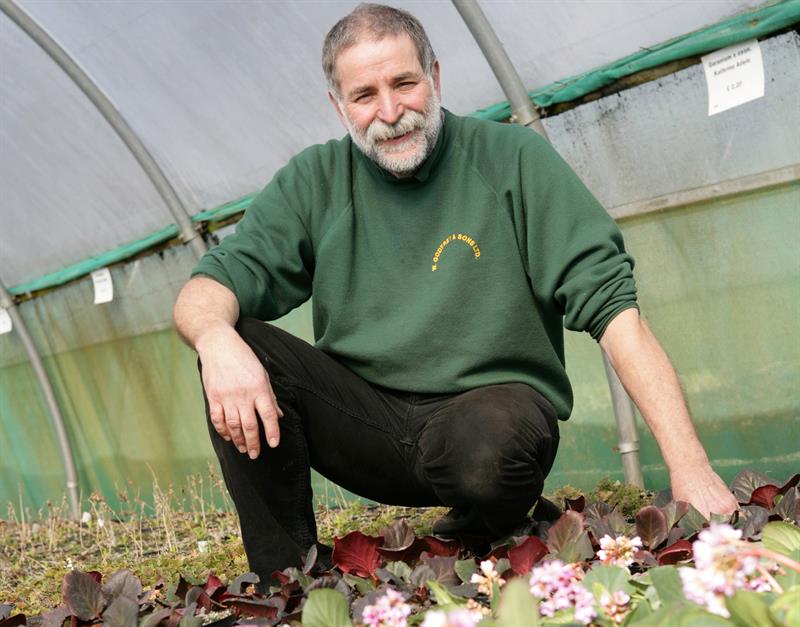
W. Godfrey & Sons Ltd are wholesale herbaceous growers, selling hardy herbaceous plants for the landscape sector. The business has six permanent staff managing a turnover of just less than half a million pounds on a 2 hectare growing site. Similar to the soft fruit and the glass house sector, the farm has a big problem with black vine weevil (Otiorhynchus sulcatus) in their containergrown hardy nursery stock.
The preferred option of IPM centres on the use pathogenic nematodes that are commercially available and applied through the overhead irrigation system. Download this case study to find out more about this approach.
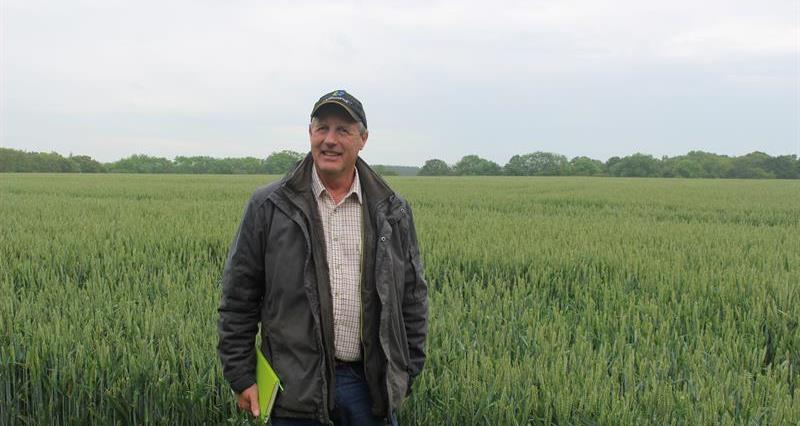
David Miller is farm manager of 700ha of grade 3 land in Hampshire for three landowners. David runs a traditional rotation of winter rape, winter barley, winter wheat, winter beans, spring linseed and spring barley. David has been growing cover crops for eight years and companion crops for five and believes that companion crops in oilseed rape have two uses: to distract cabbage stem flea beetle and to be of benefit with nutritional elements for the rape.
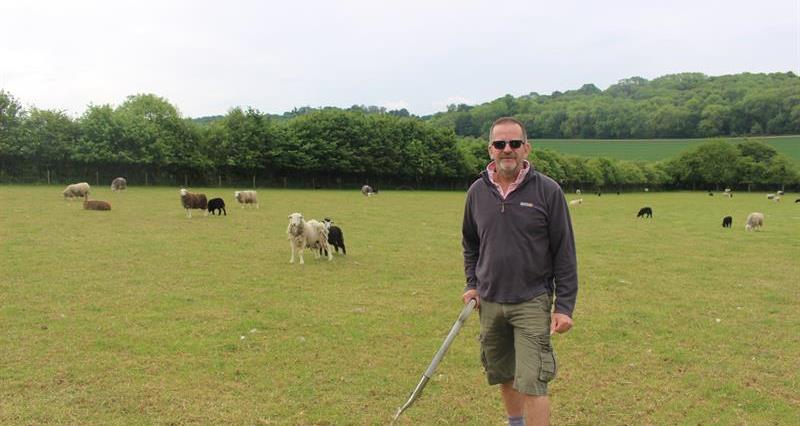
Ian Waller is a first generation tenant farmer and has been on his 450 hectare farm in the Chilterns since 1990. The total cropped area of this land is 380ha, with the remaining 18% as non-productive land or in stewardship. Protection and enhancement of the farm’s wealth of environmental features, combined with a sustainable business are vital to the success of IPM at Hampden Bottom Farm. They were one of the first (and largest) farms in the South East to be accepted into the HLS stewardship scheme and are really proud of what they have achieved at the farm in terms of wildlife management.
Ian has encouraged this diverse range of species by managing the farm in a way which provides habitat for insects and birds. Download this case study to find out more.
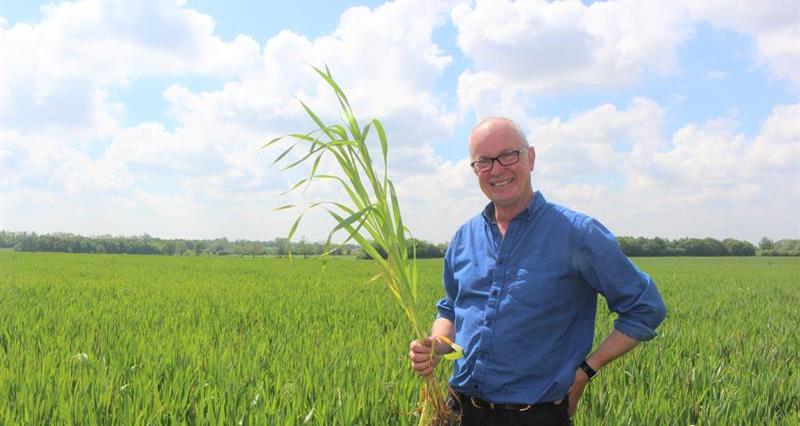
John Pawsey is an organic farmer who farms 650 hectares of Hanslope series clay and chalky boulder clay in Suffolk. Download this case study to find out about John's systems approach to managing pests, weeds and diseases by growing a wide rotation, choosing appropriate varieties and building fertility up through clover leys.
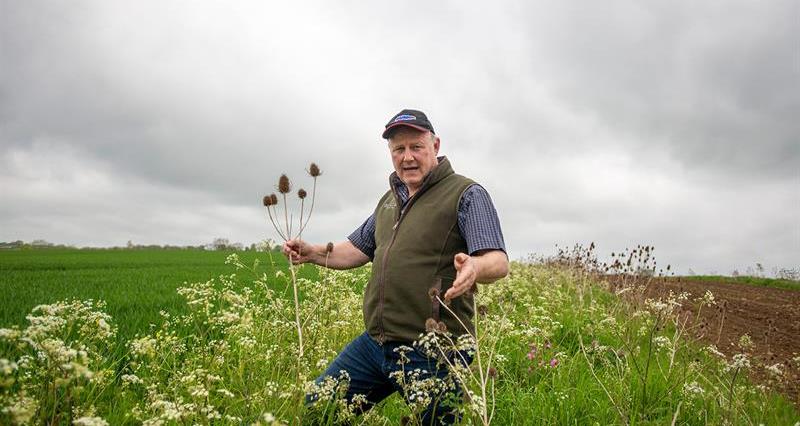
The Allerton Project, managed by the Game & Wildlife Conservation Trust (GWCT), aims to carry out field-scale research on agri-environmental and food production issues and then share results with over 4000 visitors each year (the public, farmers and other agricultural professionals and policy makers). The Allerton Project has been working to this end since 1992. In order to stop any decline in species Phil believes 3 management practices are necessary:
- Provide appropriate habitat
- Supplementary feeding in winter
- Predator control
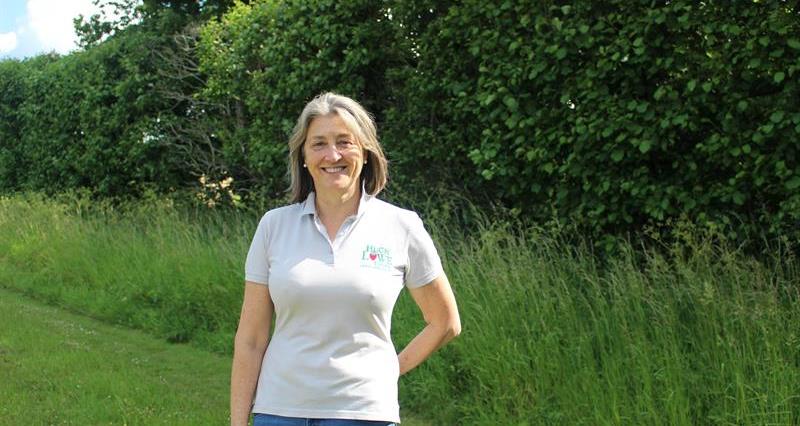
Hugh Lowe Farms Ltd farm a total of 750ha and produce 5,000 tonnes of strawberries and 1,000 tonnes of raspberries and blackberries under tunnels and glass on 170ha. The rest of the land is in an arable rotation, with 15% managed for wildlife/environmental purposes.
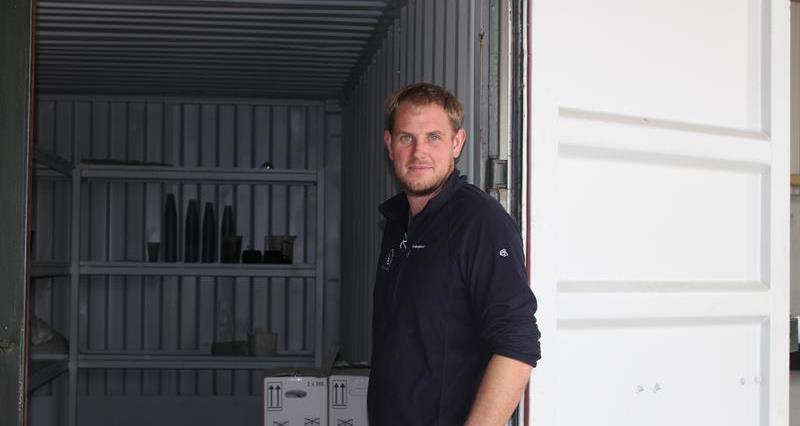
Atkin Farms is located in Field, Staffordshire and is a 930 acre mixed farm, 80% arable and 20% grassland. It is situated north of the Blithfield Reservoir and has the river Blithe running through the farm alongside several of its fields. Rob Atkin is a trial farmer for SSW, helping to test new and innovative ideas that could be rolled out into the greater SPRING scheme, which has been set up by SSW that aims to support local farmers in the Blithe catchment area who are interested in exploring catchment friendly land management. Download this case study.
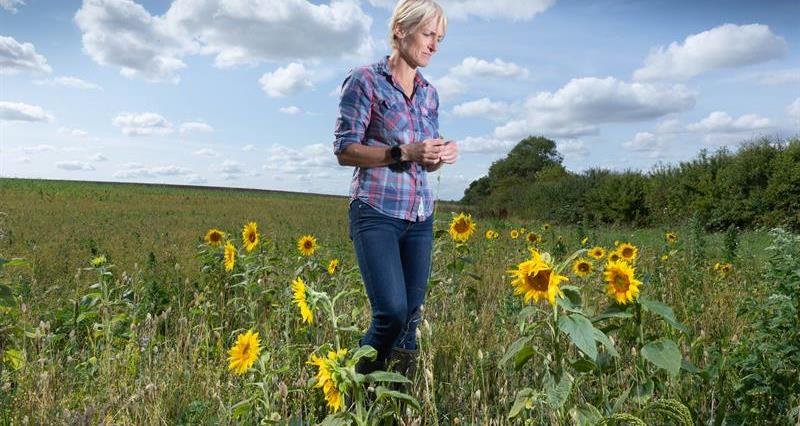
Saya Harvey and her father Richard Harvey farm at Manor Farm, Owston in Leicestershire. They grow three crops in rotation on 90ha of arable land: oilseed rape, feed wheat and
beans. The farm also includes 10ha of extensively managed grassland, a scheduled ancient monument and 10ha of new woodland habitat.
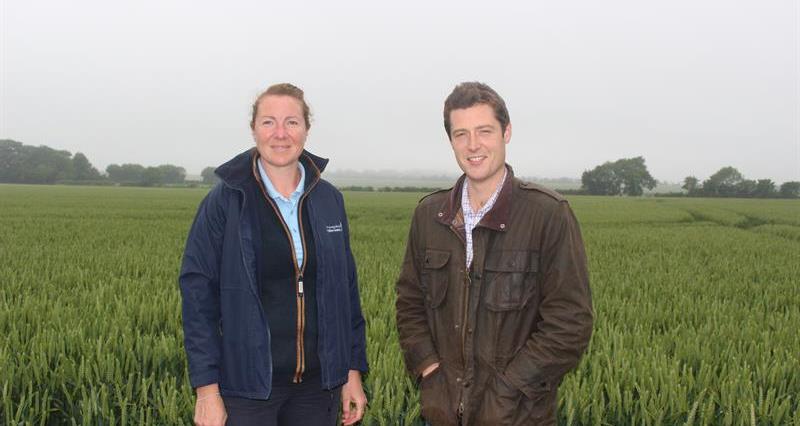
J Wharton (Agriculture) Ltd is a 2,500ha farm within 12,500ha of one of the campaign catchments, Long & Great Eau in Lincolnshire. The cropping rotation on the farm is wheat, beans, peas, spring oats, either winter or spring barley and oilseed rape.
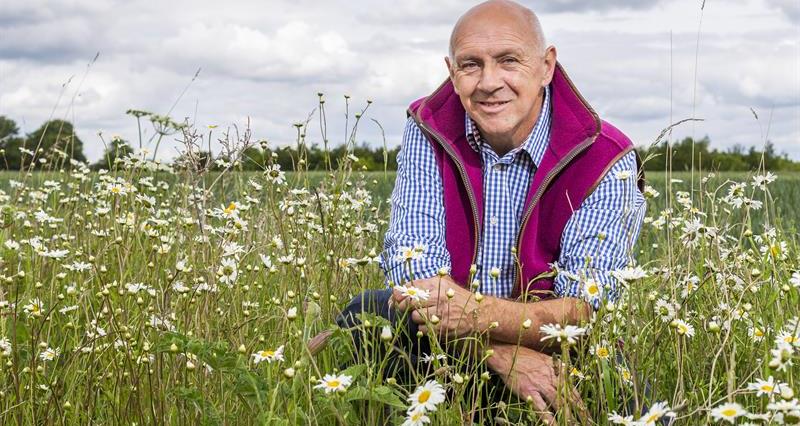
Tim Scott farms 600 acres of arable land in Cambridgeshire, including the site of the Syngenta Black-grass Innovation Centre, at Barton. Some of this land is farmed on behalf of the Countryside Restoration Trust (CRT).
More from NFUonline:
